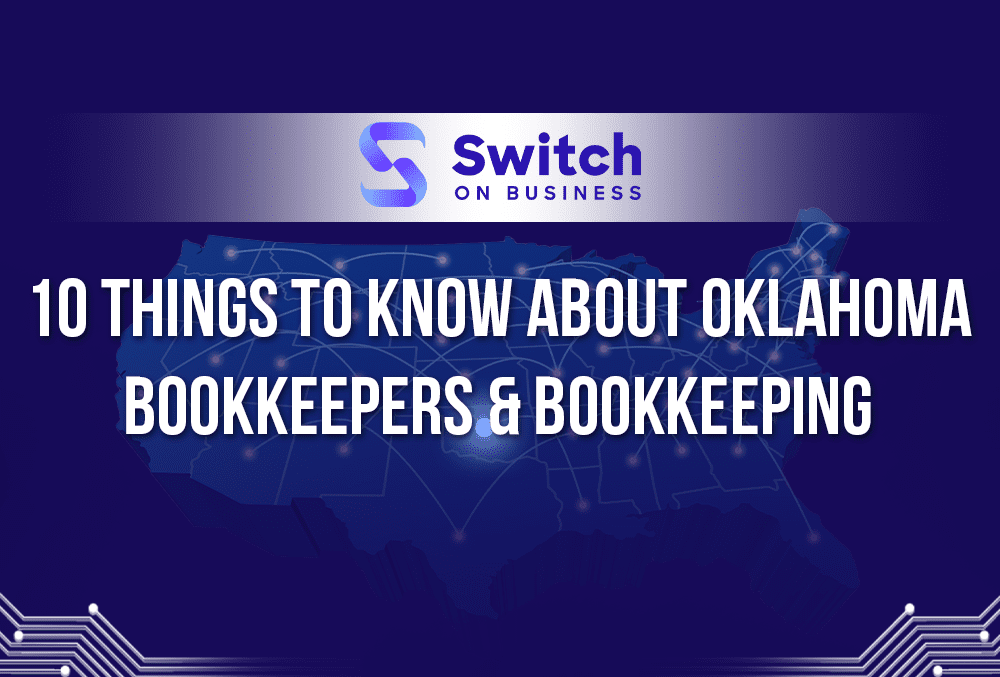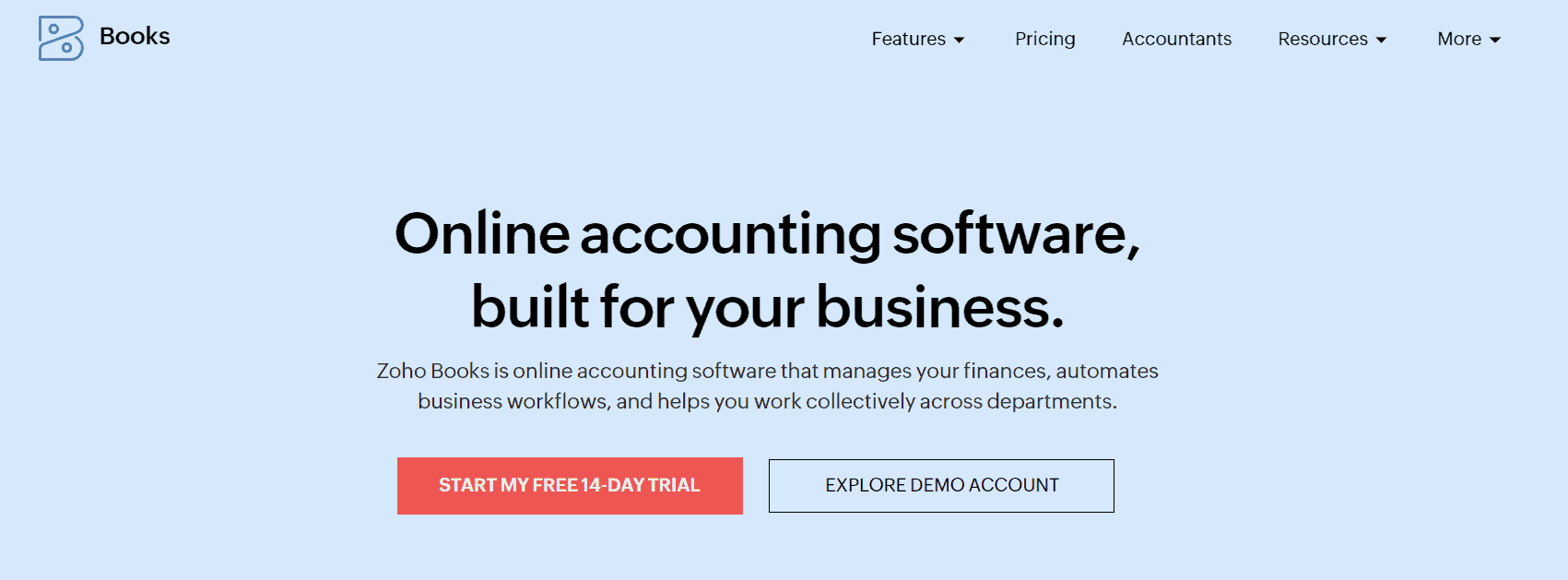
Knowing all the essentials about bookkeeping in Oklahoma will help you locate the perfect bookkeeper with ease. Here are 10 things to know about Oklahoma bookkeepers and bookkeeping.
1. How Much Do Oklahoma Bookkeepers Cost?
Hiring a bookkeeper will help take care of your business finances and ensure accuracy. Depending on the complexity of the work, the type of software used, and the location of the bookkeeper, the cost of these services will vary.
In Oklahoma, freelance bookkeepers hired through Upwork can cost anywhere from $13 to $250 per hour, whereas bookkeeping companies usually charge around $40 an hour.
Using software for bookkeeping is the most cost-effective option. Depending on the plan, this subscription can range in price from free all the way to a few hundred dollars per month.
With specialized bookkeeping software, you won’t need to hire a bookkeeper. And if you choose to do so, having access to these types of tools can make the whole process more streamlined when it comes to imputing your receipts, outgoings, or any other business-related operations.
2. What Are Typical Bookkeeper Hourly Rates in Oklahoma?
The hourly rate for bookkeepers in Oklahoma is listed on various websites, with salary information indicating that it ranges from $18 to $20 per hour.
- Indeed: $18.63 average hourly rate
- Pilot: $18.76 average hourly rate
- Glassdoor: $20 average hourly rate
- Bookkeepers.com: $18.33 average hourly rate
The Bureau of Labor states that the mean hourly wage for bookkeeping, accounting, and auditing in Oklahoma is $19.13. This number is fairly close to the median wage of $20.20. The lowest hourly wage reported is $18.06, while the highest is $20.
3. What Is The Average Bookkeeper Salary in Oklahoma?
Online sources indicate that bookkeepers in Oklahoma can expect to receive a full-time salary. The wages for this job are:
- Indeed: $38,417 average per year
- Salary: $40,067 average per year
- Glassdoor: $41,649 average per year
- Zippia: $35,000 average per year
- Talent: $37,745 average per year
- ZipRecruiter: $37,258 average per year
The Bureau of Labor states that in Oklahoma, bookkeepers earn an average yearly wage of $39,790 before taxes and benefits are included.
4. What Does an Oklahoma Bookkeeper Do?
Bookkeepers, accountants, and auditing clerks are responsible for a variety of tasks, as outlined by the U.S. Bureau of Labor Statistics.
Bookkeepers are responsible for keeping track of financial transactions, preparing financial statements, producing bank deposits, sending payments, verifying receipts, handling payroll, preparing invoices, and monitoring overdue accounts.
Additionally, bookkeepers may provide financial advice and analysis, prepare tax returns, and prepare asset and liability statements.
5. How To Become A Bookkeeper in Oklahoma
In Oklahoma, there’s no particular educational requirement to become a bookkeeper. However, it’s essential to possess a thorough understanding of mathematics, as well as the capability to maintain precise records. Experience with accounting software and knowledge of accounting fundamentals are also essential.
To gain the necessary qualifications for a bookkeeping position in Oklahoma, you should start by obtaining a degree in accounting or a related field. This will provide an understanding of the fundamentals of accounting and how to best utilize them in a professional environment. There are various online courses and certification programs available to help increase your knowledge and practical experience.
To be certified as a bookkeeper in Oklahoma, one must obtain a license from the Oklahoma State Board of Accountancy. This requires passing an exam. Upon successful completion, one becomes authorized to practice as a bookkeeper in the state.
6. Do You Need To Be Certified or Licensed To Be an Oklahoma Bookkeeper?
No special certification is needed to become a bookkeeper in Oklahoma, but having a university degree in accounting or job experience can be advantageous. Educational programs can give the necessary training and skills for the position, and certification may open up more job prospects.
In order to become a Certified Public bookkeeper in Oklahoma, applicants must meet certain criteria. These include:
- Being a resident of the state before applying
- Having 150 semester hours of university credit
- Having the necessary experience.
U.S. citizenship is not required, though all 150 hours must be achieved prior to taking the CPA exam; unlike in other states, which allow the exam with 120 hours.
7. Can I Take Any Bookkeeping Classes in Oklahoma?
Oklahoma offers a wide selection of bookkeeping classes, with some of the top picks being:
- Community Outreach & Education: This course aims to prepare students to take and pass the American Institute of Professional Bookkeepers (AIPB) certification exam. It covers the eligibility requirements, code of ethics, and maintenance requirements for bookkeeper certification. Additionally, it teaches the concepts of accrual accounting and how to record book and tax depreciation, as well as perform basic payroll duties. Students will also learn how to value inventory, use internal controls, and record and report inventory on financial statements.
- Francis Tuttle: Students enrolled in the Full Charge Bookkeeper major will develop a deep understanding of accounting practices and administrative duties. Additionally, they will learn how to communicate and manage financial matters in order to keep a company successful and guide its advancement.
- University of Oklahoma: At the University of Oklahoma, the Bachelor of Business Administration in Accounting degree provides students with a comprehensive education in the field of accounting.
8. What Software Can I Use For Bookkeeping in Oklahoma?
In Oklahoma, one can find a variety of bookkeeping software options.
I. QuickBooks

QuickBooks is the most popular software for bookkeeping and has become a staple in university courses. Although it is not the most cost-effective option, starting at $17 per month, its features are worth the expense. These features include income and expense tracking, invoices and payments, reports, mileage tracking, and tax deductions.
II. FreshBooks

With FreshBooks, bookkeeping, invoicing, and accounting is made easy. Clients can manage their finances with the self-service portal, and you can set up recurring billing and client retainers, as well as send invoice check-out links to get paid promptly. The lite version starts at $15, and the premium is $55.
III. Zoho

If you’re in the market for an economical accounting solution packed with features, Zoho Books is a perfect choice. At just $15 per month (paid yearly), you can take advantage of services such as sales tax reports, full-service accounting, automatic payment alerts, time tracking, and project expense tracking. Additionally, this software is compatible with other applications developed by Zoho.
IV. Xero

The cloud-based bookkeeping and accounting features of Xero enable businesses to administer their finances from any location.
These features include automated banking transactions, bank reconciliation, accounts receivable and payable, invoicing, payroll, budgeting, and reporting. Prices for these services begin at $13 for the basic version and increase to $70 for the established plan.
V. Sage

Sage Accounting software is a comprehensive financial solution designed to help businesses of all sizes manage their finances. With subscription prices starting at just $10 for the starter plan and $25 for the premium plan, the software provides users with the tools they need to track expenses, manage invoices, generate financial reports, manage cash flow, budget, and track assets and liabilities.
9. How Many Bookkeepers Are There in Oklahoma?
According to the Bureau of Labor Statistics, there were approximately 20,740 bookkeepers employed in the state of Oklahoma.
10. Where Can I Find The Best Oklahoma Bookkeepers?
To find the top bookkeepers in Oklahoma, choose your city from the list below:
